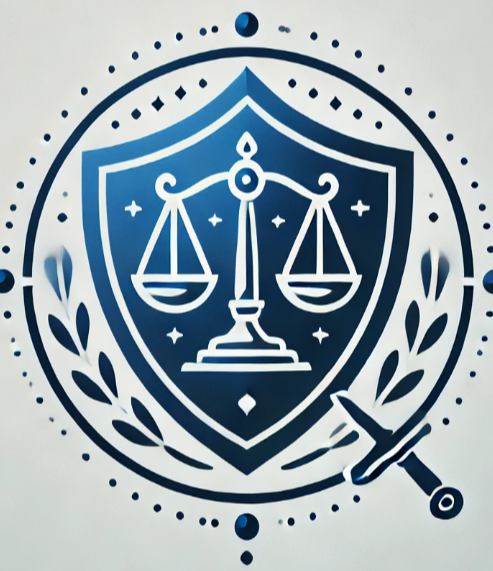Why Ethics Matter
Private investigators work where trust, privacy, and sensitive facts meet. The job often involves vulnerable people, personal records, and information that can change lives. Ethics aren’t optional; they protect clients, subjects, and investigators themselves. Acting ethically preserves credibility, reduces legal risk, and produces evidence that courts and employers will respect.
(Explore more about how we maintain integrity in our Private Investigation Services.
Core Ethical Principles
Follow the Law First
There’s no ethical shortcut that overrides legal limits. Laws about recording conversations, surveillance, trespass, data access, and tracking vary by state and country. Ethical investigators know those boundaries and consult lawyers when uncertain. Acting outside the law risks criminal charges, ruined evidence, and ruined careers.
(Also see our guide on Background Checks to understand legal compliance in screening.)
Respect Privacy and Dignity
Investigations probe private matters. Treat subjects with basic human dignity. Avoid unnecessarily intrusive tactics in private spaces like bedrooms, bathrooms, or areas with a reasonable expectation of privacy. If evidence can be gathered through lawful, less invasive means, choose that route.
Obtain Informed Consent Where Appropriate
Some work requires consent—background checks, accessing medical or financial records, or interviewing third parties who require permission. Make sure clients and subjects (when needed) understand what will be collected and how it will be used.
Maintain Confidentiality and Data Security
Investigators handle sensitive data: documents, audio, video, and personal identifiers. Store materials securely, limit access to those who need it, and protect digital files with strong passwords and encryption where possible. Disclose findings only to authorized parties and be mindful of client confidentiality obligations.
Avoid Conflicts of Interest
Don’t take assignments where personal, financial, or professional relationships could bias your work or appear to do so.
Be Objective and Avoid Bias
Ethical investigators gather facts and report them clearly. Avoid editing reports to fit a client’s desired outcome.
Use Proportionate Tactics
Choose methods appropriate to the objective. Use least-intrusive means first and escalate only when necessary and lawful.
Protect Vulnerable People
When children, elderly individuals, or people with disabilities are involved, take extra care.
Document Thoroughly and Honestly
Keep contemporaneous notes, timestamped media, and records of who handled what evidence.
Avoid Entrapment and Inducement
Don’t coax or coerce someone into unlawful behavior to create evidence.
Be Clear About Limitations and Deliverables
Set expectations with clients from the outset.
Handle Reporting and Testimony with Integrity
When presenting findings to clients, courts, or other parties, be factual and restrained.
Maintain Professional Competence
Stay updated with laws, technology, and best practices.
Fair Billing Practices
Charge fairly and transparently.
Know When to Refer
If a case requires services outside your expertise—mental health evaluation, legal counsel, or complex digital forensics—refer to qualified professionals.
A Short, Practical Checklist
- Verify legal constraints for the jurisdiction before engaging.
- Obtain written client agreement and necessary consents.
- Document scope, methods, timeline, and fees in writing.
- Secure data with restricted access and clear retention policies.
- Keep detailed logs and maintain chain-of-custody for evidence.
- Avoid private-space intrusions unless legally authorized.
- Disclose conflicts of interest and recuse if necessary.
- Use least-intrusive methods first; escalate only when justified.
- Refer to specialists when the case exceeds your competence.
- Prepare clear, factual reports and distinguish opinion from fact.
Final Thought — Ethics Build Lasting Value
Ethics in private investigation are practical, not purely philosophical. When investigators act lawfully, transparently, and respectfully, they produce evidence that can be relied upon, protect vulnerable people, and maintain professional credibility.
FAQs
Q1: Why are ethics important in private investigation?
A: Ethics ensure investigations are legal, fair, and credible, protecting both clients and investigators.
Q2: Can a private investigator record conversations without consent?
A: It depends on local laws. Many states require consent from one or all parties. Ethical investigators always follow legal rules.
Q3: How do private investigators protect client confidentiality?
A: By securing data, limiting access, and sharing information only with authorized parties.
Q4: What happens if a private investigator acts unethically?
A: They risk legal action, loss of license, ruined credibility, and inadmissible evidence.
Q5: Do investigators ever refuse cases for ethical reasons?
A: Yes. If there’s a conflict of interest, legal violation, or request for unethical tactics, professionals will decline.


Leave a Reply